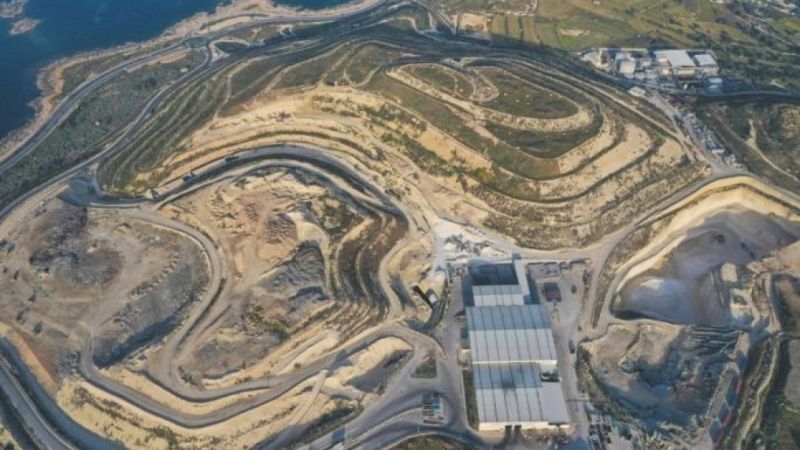A witness appearing in front of the Public Contracts Review Board currently evaluating the award of a €600 million contract for a waste-to-energy incinerator plant in Magħtab said the IT system handling the procurement was set up to publish bidders’ financial data by default before the finalisation of the process.
While multinational Hitachi Zosen labelled the process as “irregular” in its appeal, the witness, a representative from the Greek IT systems supplier European Dynamics (Eurodyn), said their system was designed for the data to be published.
The tender, awarded to a French-Maltese consortium comprising Paprec and Bonnici Brothers, came under increased scrutiny after data showing the competitor’s financial bids for the tender was published, leading to claims of behind-the-scenes manoeuvres to favour one particular bidder.
Amid technical delays due to the procedure’s mixture of online and in-person witnesses, the Eurodyn representative quoted from a 500-page spreadsheet log of actions taken on the procurement system when authorisation for the data to be released was granted.
The log showed how, on 17 February, user “YS-ZCC6” approved a request from user “GiliJ001” to publish the information.
At the time, the tendering process for the incinerator project was in its second of three stages, well before the bidders’ best and final offers (BAFO) were submitted.
The Eurodyn representative said this functionality was present in other procurement systems the company implemented in Europe and follows the “four eyes” principle requiring two officials’ approval.
The procurement process for the project, one of the largest ever undertaken by the government, included three cycles. An initial pre-qualification questionnaire (PQQ) was followed by an inviation to tender (ITT) along with competitive dialogue and negotiations. The BAFO stage capped the tendering process.
At the BAFO stage, the Paprec/Bonnici consortium revised an earlier indicative price it had submitted, making its offer the most competitive. The Paprec/Bonnici consortium was later awarded the tender.
Hitachi Zosen – Terna, another consortium bidder, challenged the outcome of the tendering process, claiming the government had “irregularly published the ‘non-binding’ financial offers by some of the bidders” during the ongoing process, “an irregularity, which has the effect of distorting competition and preventing a fair process”.
Additionally, Hitachi also claimed that the recommended bidder, the Paprec/Bonnici consortium, “cannot sustain [their submitted price] with the mandatory technical requirements specified in the tender, or alternatively will sustain the price, by offering a solution not compliant to the tender specifications.”
The resultant hearings in front of the PCRB, which started on Wednesday, saw Hitachi, through their legal counsel Adrian Delia, calling for board members’ recusal.
Delia also questioned the selection of the members of a government-appointed evaluation committee which recommended Paprec/Bonnici’s bid.
Testimony at the PCRB revealed that the government-appointed committee included Stefanie Scicluna Laiviera, Branica Xuereb, Charlon Buttigieg and Wasteserv CFO Jonathan Scerri.















Such a contract which is safety critical and specialized cannot be treated like a car rental offer.
The specifications would be highly technical and that respect EU regulations .
The suppliers would need to prove that every requirement is respected and that a risk analysis of the project proving that it is fail safe is expected.
Unrealistic pricing , high or low needs to be identified and justified for all critical items.
A minimum time of response by the supplier must be contracted and penalties agreed.
The plant has to be managed for the first 6 months by the supplier , the next 6 months by the owners’ operations team and final handover signed..
This is why Experts need to be involved in the Selection , who must go into the details of the specifications of each project with the suppliers engineering team.
This is not a car being rented out.